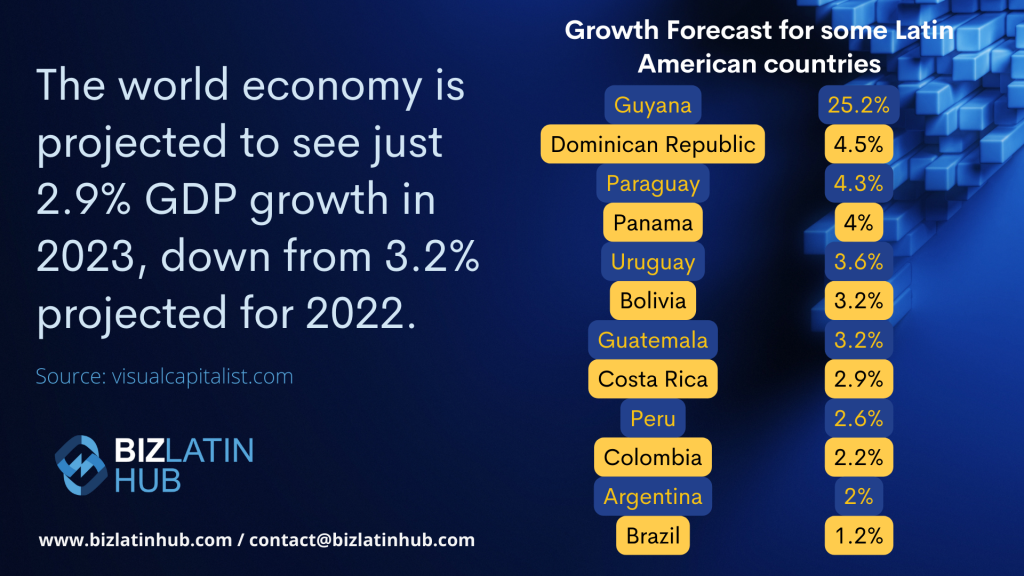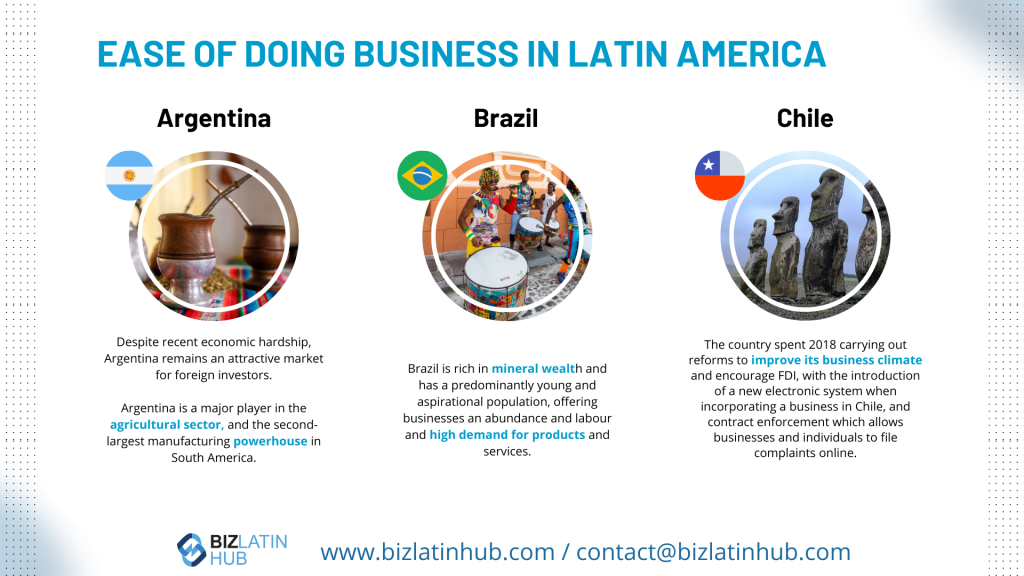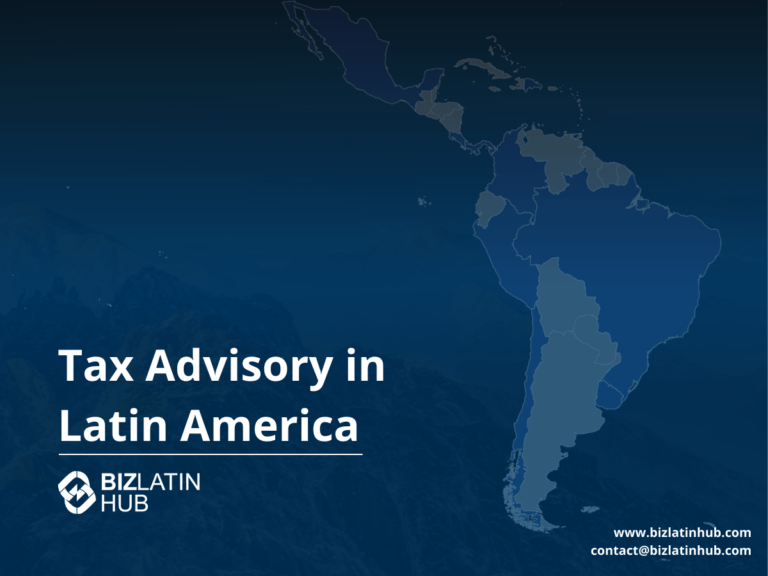Company formation, also known as company incorporation or business registration, is the process of creating a legal entity to establish a commercial presence in a new environment. This allows you to conduct business activities and experience the commercial opportunities of a particular jurisdiction. Many foreigners have found registering a business to be a great way to enter the Latin American market and begin business operations. This guide compares the three main categories of corporate vehicles available across the region to help multinationals standardize their legal presence.
Key Takeaways On Legal Structures In Latin America
| What are the most common types of legal structures across the region? | A Branch Office of a Foreign Company (Sucursal de Sociedad Extranjera) A Corporation (Sociedad Anónima – ‘S.A’) A Simplified Shares Company (Sociedad por Acciones Simplificadas – ‘S.A.S’) A Limited Liability Company (Sociedad de Responsabilidad Limitada – ‘SRL’ or ‘LTDA’) |
| What is the most common Latin American business entity? | The most frequently incorporated legal entity in the region is the SRL, although where available the S.A.S is usually better. |
| What are the advantages of a Simplified Stock Company (S.A.S.)? | Its key advantage is the immense flexibility of its bylaws, which can be tailored by the shareholders, and the simplicity of its incorporation process, which is often faster and cheaper. |
| Who is best suited to an LLC? | A Limited Liability Company (S.R.L. or S. de R.L.) is common for SMEs. |
| Who is best suited to an SA? | A Corporation (S.A.) is best for large businesses seeking investment. |
| What is the role of a legal representative? | This individual serves as the company’s legal representative before governmental authorities. |
| What are the primary considerations when choosing a business entity in Latin America? | Ownership Structure. Tax Efficiency. Profit distribution. Transfer Pricing. Compliance. Flexibility. |
Comparing the Main Corporate Structures
There are four main types of legal structures in Latin America. While the requirements, characteristics, and operations may differ slightly between countries, there are some common points:
- A Branch Office of a Foreign Company (Sucursal de Sociedad Extranjera)
- A Corporation (Sociedad Anónima – ‘S.A’)
- A Simplified Shares Company (Sociedad por Acciones Simplificadas – ‘S.A.S’)
- A Limited Liability Company (Sociedad de Responsabilidad Limitada – ‘SRL’ or ‘LTDA’)
In most cases, and where permissible under local laws, a simplified shares company is the best legal structure for most business applications; but make sure to conduct research on all types of legal structures in Latin America, as they vary between territories in terms of specifics.
1. Corporation (Sociedad Anónima – S.A.)
- Best For: Large businesses, companies intending to list on a stock exchange, or ventures with many shareholders.
- Features: Ownership divided into easily transferable shares; governed by a formal board of directors; highest level of corporate governance.
2. Limited Liability Company (Sociedad de Responsabilidad Limitada – S.R.L.)
- Best For: Small to medium-sized enterprises (SMEs), family businesses, and joint ventures between a few partners.
- Features: Ownership divided into quotas with restricted transfer rights; simpler administration than an S.A.; liability limited to capital contributions.
3. Simplified Stock Company (Sociedad por Acciones Simplificada – S.A.S.)
- Best For: Startups, technology companies, and modern businesses seeking flexibility.
- Features: (Available in select countries like Colombia and Argentina) Highly flexible bylaws; simple and fast incorporation process; can often be started with a single shareholder.
Expert Tip: The Flexibility of the S.A.S. Where Available
From our experience working across Latin America, the Simplified Stock Company (S.A.S.) is the most modern and flexible corporate structure available, but it is not offered in every country. It was pioneered in Colombia and has been adopted by other nations like Argentina. Its key advantage is the immense flexibility of its bylaws, which can be tailored by the shareholders, and the simplicity of its incorporation process, which is often faster and cheaper. If you are incorporating in a country that offers the S.A.S. structure, it is almost always the best choice for startups, tech companies, and SMEs due to its low administrative burden and adaptability.
4. Branch of a Foreign Company (Sucursal)
- Best For: Large, established multinational corporations expanding their existing brand and operations.
- Features: Not a separate legal entity; the foreign parent company is fully liable; often has complex registration and reporting requirements.
Subsidiary Vs Branch
Across Latin America, establishing a Subsidiary (a local entity distinct from the parent) is almost always preferred over a Branch. Branches often require the parent company’s full capital to be exposed to local liability, take longer to register (requiring government resolutions), and face stricter banking compliance. Subsidiaries offer a “liability shield” and faster operational setup.
Key Regional Considerations for Choosing a Structure
While these corporate structures share common names and features across Latin America, the specific requirements, minimum capital, and formation processes vary significantly from country to country. It is essential to consult local regulations before making a final decision.
Expert Tip: Standardization of Governance
From our experience managing regional expansions, we advise clients to use the SAS (or SpA in Chile) structure wherever possible. Using the same flexible structure across multiple countries (Colombia, Ecuador, Uruguay, etc.) allows you to standardize your bylaws, board resolutions, and power of attorney templates. This uniformity significantly reduces the legal management burden for your general counsel compared to managing a mix of S.A.s and S.R.L.s with different governance rules.
How can I incorporate a legal structure in Latin America?
Although costs, time periods, and levels of stress involved in setting up a company vary between the different types of legal structures in Latin America, nearly all of them share key procedural elements.
PRO TIP: It is highly recommended that you partner with local experts who can manage the incorporation process and can ensure that your company is correctly structured based on your business activities. The types of legal structures in Latin America can be hard to navigate for those who do not understand the nuances of the region.
A good service provider can support you throughout the entire company incorporation process. Some invaluable incorporation services include:
- confirm the most appropriate legal structure
- complete a company name search
- prepare the company bylaws
- obtain the official company books
- register the company with the local authorities
- obtain the company tax ID
- open a corporate bank account
From Our CEO: “During the process of securing your company Tax ID, some countries allow the company to be registered under different taxation regimes, which can lead to significant financial savings. For example, in Peru, a company can register as a ‘Small Business’, which in turn rewards the company with a number of fiscal advantages. This is why it is so important to ensure that you are working with local experts who can guide you through the process and to ensure its done right”. – Craig Dempsey

Legal compliance requirements of a company in the complex types of legal structures in Latin America
Most countries in Latin America required local companies to meet some minimum statutory requirements. While these vary from country to country, the region shares some commonalities. See below some of the basic legal compliance requirements in Latin America.
- Appointment of a company legal representation (‘local director’) – This individual serves as the company’s legal representative before governmental authorities and is responsible for maintaining the company’s good standing. They must be a citizen of the country or a foreign national with the right to reside and work in the country.
- Register a legal/fiscal address – This is the registered legal address of the company and will be used for the filing of taxes, mailing purposes and for other official communication. This must be a physical address within the country, and in most cases, it must be a registered office location.
- Tax declarations – Every legal entity within Latin America must file monthly and annual tax declarations with the national tax authority.
Note: Depending on the value of business activities and/or the type of legal structure, some countries may also require the appointment of an external and independent auditor for the company.

Frequently Asked Questions: Latin American Legal Structures
In most Latin American countries, yes. The majority of economies in the region permit 100% foreign ownership of companies without the need for a local partner or shareholder.
We usually recommend Simplified Share Companies where they exist, but this does vary slightly depending on a variety of factors, such as the country, industry and size of company.
Although our guide above gives you the basis for understanding the region, we always recommend that you talk to one of our dedicated local specialists who can advise you on the best path forward for your situation.
This depends on where you are used to. However, there is a broadly similar business culture throughout Latin America to what you might expect in the USA, Europe or Canada. Again, do make sure to consult a local specialist for precise and tailored advice.
Generally, yes. Most legal structures in Latin America come with built in liability protection, meaning that you are generally limited to the value of your investment as long as you are compliant.
The main difference lies in ownership and governance. An S.A. (Corporation) has shares that are freely transferable, making it easy to bring in new investors, and it is governed by a board of directors. An S.R.L. (Limited Liability Company) has participation quotas that are difficult to transfer, and it is designed for a small number of partners with more direct management.
In nearly all Latin American countries, a company must appoint a legal representative who is a resident of the country. This person is legally responsible for the company and has the authority to sign documents and act on its behalf. Appointing this representative is a critical step in the formation process.
A branch office is an extension of a foreign parent company, not a separate legal entity. This means the parent company is fully liable for its branch’s activities and debts in Latin America. It is most commonly used by large multinational corporations.
The SAS model (pioneered by Colombia) shares key features across the region: it allows for a single shareholder, does not require a public deed (lowering costs), and has broad freedom of contract for bylaws.
No. Each country requires a legal representative who is a resident of that specific country (citizen or visa holder). You cannot appoint one person to represent all LATAM entities unless they hold residency in every single one.
Essential guide – Why form / incorporate a company in Latin America?

Latin America is living something of a golden age. The region is experiencing a period of significant economic growth and is becoming increasingly attractive to investors. Here are a few key reasons to consider forming a company there:
Strong economic indicators: GDP continues to grow impressively. Positive, investment-friendly, legislation is being adopted by many governments which keeps forecasts looking good! The World Bank shows that the region has a strong GDP of nearly USD$6 billion, and is showing strong annual growth. Some markets, like Peru, are performing well above this average. Their economy is growing at an impressive 13% year-on-year.
Furthermore, companies are backing the region to produce some very impressive investment figures. In 2021, the region received over USD$200 billion in foreign investment, with countries like Mexico performing particularly well. The North American country received over USD$30 billion in that same year.
There are many benefits to all types of legal structures in Latin America, such as:
- A proven market that is home to diverse business opportunities
Choosing to form a branch or business in Latin America opens the door to some of the most dynamic, upcoming industries on the planet. There are over 50 unicorns in the region, and venture funding is firmly on the rise. One example is Kavak, a Mexican used-car platform valued at nearly USD$9 billion.
- Availability of talented and bilingual workforce at a lower cost compared to North America or Europe.
Another benefit to starting a business in Latin America is that you can access highly educated, well-trained professionals for a fraction of the price of hiring in Europe or North America. This is particularly useful for companies based in Canada or the USA and allows for a phenomenon called Nearshoring. Researching the types of legal structures in Latin America can help you classify your company for similar business activities.
- Opportunities to take advantage of government incentives aimed at attracting foreign investment.
Governments have recognized that bureaucracy can be a problem, and have made several steps to simplify and incentivize business in the region. A good example of simplifying legal requirements and helping those understand the types of legal structures in Latin America is the launching of the Simplified Shares Company in Ecuador and other countries.
The mission of Biz Latin Hub is simple: we strive to do everything we can to promote a healthy and fruitful relationship between investors and the remarkable, ever-evolving and emerging economies of Latin America.
Biz Latin Hub can help you with types of legal structures in Latin America
To conduct business, financial and hiring activities in Latin America, it’s necessary to establish a local legal entity. It’s crucial to identify the appropriate types of legal structures in Latin America for your business and complete the incorporation process accurately. We can support you in understanding the differences between all types of legal structures in Latin America.
Biz Latin Hub can be the perfect partner to help you navigate your way through this challenge. We offer a full, multi-lingual suite of back-office services in a number of Latin American countries, boasting local expertise in each jurisdiction. If you have any queries about the business opportunities in your country of interest, the company formation steps or anything to do with a specific Latin American industry, do not hesitate to get in touch with our team.






